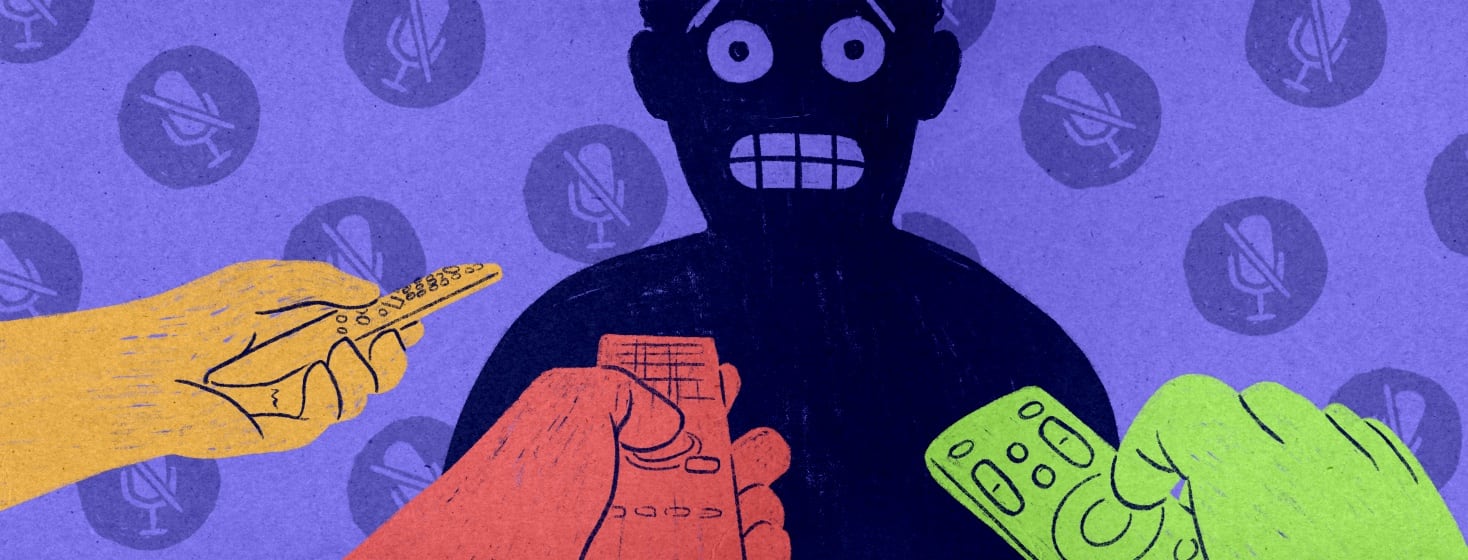Is There Such a Thing as Talking Too Much About Your Disease?
I remember when I was first diagnosed with Crohn’s disease in 2009. It was just shy of my 24th birthday and I was terribly embarrassed to share my new diagnosis with others. I wondered what my friends and colleagues would think, and how I could ever possibly date if I was living with a disease that meant chronic stomach pain, urgency, and debilitating fatigue.
Fear of being judged for having Crohn's
Truthfully, I remained quiet about my diagnosis for a while. I didn't know what to say to others, and was afraid I would be faced with judgment after disclosing that I had Crohn's.
For those who had known me for years, I didn't want them to see me differently and treat me as if I were broken. And, for those who I would meet after being diagnosed, I feared they would immediately judge me and not want to get any closer, keeping me at arm’s length.
Speaking out about my diagnosis
It wasn't until I had my first major flare in 2011, which left me hospitalized for 3 weeks, that I spoke out about my disease to friends and colleagues.
They were full of questions, asking how I felt, what exactly is a "flare," how did I know to call the doctor, what does "Crohn’s" actually mean... the list went on. I answered the questions as honestly as I could without getting into too much detail.
Featured Forum
View all responsesNot wanting to be defined by my condition
Over the course of the next few years, I kept my disease under wraps. If I didn't feel well and had to cancel plans with friends last minute, I made up an excuse that I had something for work pop up or I forgot that I promised to watch my sister's kid. I didn't want to divulge too much into exactly what was going on because I did not want to be defined by my Crohn's.
It wasn't until 2013 when I met one of my best friends through the Crohn's and Colitis Foundation that I started feeling more comfortable about talking about my disease. While she did not have Crohn's, she recruited me to run for their Team Challenge half marathon which then connected me with other patients.
Making connections and finding support from others
I quickly realized that had I not spoken up about my disease and gotten involved in our local chapter of the Foundation, I would have never met my friend nor connected with fellow patients. Conversations about the disease flowed easily, and I was able to feel comfortable talking about symptoms with others who knew exactly what I was talking about. This led to feeling more confident in sharing my story and the fact that I was living with Crohn's so I started being bolder when discussing with others.
A few months later, I was in Cuba with a non-profit organization, and someone asked why I was gluten-free. The group with whom I traveled was comprised of thirty women, and I was only friends with one of them.
She, of course, knew why I maintained a gluten-free diet, but the other women were genuinely curious. I simply replied, "I have Crohn's and it helps with my symptoms." My response was met with understanding, with 1 woman calling me out on my bravery for being so open about my disease.
Others opened up as I began to share my story
It was her supportive words that made me feel confident about speaking openly about my disease going forward, and only positive experiences came from it.
Over the next few years, I would benefit greatly from speaking about my disease. I formed friendships, was referred to excellent doctors, made connections within the Crohn's community, helped others on their journey, and most importantly, became a resource for fellow patients. It is also amazing how many people opened up about their own struggles with digestive issues, IBD, IBS, or any other chronic illness once I shared my own story.
There has never been a time that I thought, "Do I talk about my disease too much?" because as long as it has helped others along with myself, there is never a reason to be ashamed. Truthfully, I wish I had spoken up more about my disease sooner, but while I cannot change the past, I am especially grateful for sharing my story about this lifelong illness and will continue doing so for the rest of my life.

Join the conversation